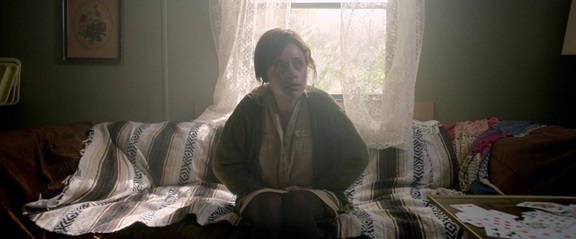 Taking place in a backwoods community, Chad Crawford Kinkle's Jug Face is the story of Ada, a teenage girl who discovers she may be pregnant due to a incestuous relationship with her brother. A backwards community that lives more like a cult, they routinely perform human sacrifices to appease a mysterious pit which they believe keeps their community safe and intact. In order to pick the person to be sacrificed, a ceramic jug is created, with the lucky individuals face being imprinted. When Ada discovers that her face has appeared on the most recently crafted Jug, she hides it from everyone, unleashing this unspeakable evil entity on the community with tragic results. Jug Face is a anomalous horror film that doesn't do enough to make itself truly stand out. Going into Jug Face I was hoping for something similiar to McKee's The Woman, but while Jug Face is just as morbid and subversive, it fails at ever achieving anything beyond these rather superficial qualities. The film wants to get under you skin and it certainly achieves that with some creepy atmospherics but there are lots of thematically rich elements that are never fully realized in Jug Face as it succumbs to being nothing more than a camp fire story. The filmmakers of Jug Face show a lot of restraint, slowly unwinding the narrative threads but it never has a great sense of escalation, as I found the story feeling a little tedious throughout its running time. For all its faults Jug Face is still a promising first time feature from writer/director Chad Crawford Kinkle, who shows some ability to create a special type of film, given his story has a more-realized thematic intention. 5.5/10
0 Comments
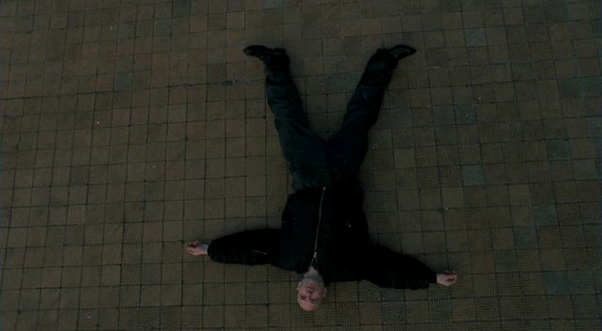 Koen Mortier's Ex- Drummer tells the story of a well regarded writer who agrees to join a band with three handicapped low-lives as their drummer. In the beginning narration of the film, the writer explains that he is doing this as a social exoeriment where he submerses himself in the fifth and ugliness of society. Ex-Drummer is an insane, dirty, gritty flick that is very stylistic and visual in its study of anarchist punk rock as true culture. Not a bunch of fucking stupid kids who dress in black and have piercings cause "they look cool", this film dives deep into their world of disorder and essentially chaos against the establishment and just general lack of anything in which society deems necessary. As one could imagine Ex-Drummer is nihilistic to the bone but it's also a dark, dark comedy with some great moments. The best way to explain this film would be if Gasper Noe made 'Transpoitting' with a hint of ''Withnail and I" mixed in. The visuals are throughly interesting and extreme in displaying this upside down world. Literally segments of the film are upside down, particularly revolving around one character, as a way to visually show the chaos. This is not the most enjoyable film but Ex-Drummer is a film that should be experienced. The film is full of interesting discussion but I wish it had been directed more at society as a whole, instead of being simply a vial, yet effective portrait. 7.75/10 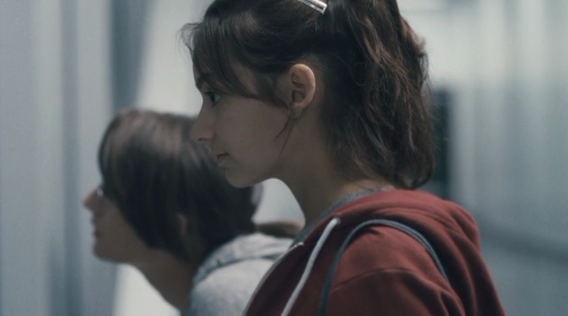 Sarah, a high-school student is passionate when it comes to track and field. One of the best runners on her team, Sarah dreams of going to the University of Montreal where she can further the path to her dreams. The problem is her mother doesn’t see Track as something her daughter should be wasting her time with, often citing how running “won’t put food on the table”. Against her mother’s wishes, Sarah leaves for the University where she soon begins to discover herself. Chloe Robichaud’s Sara Prefers To Run is a coming of age story which captures the importance of passion but also the obstacles and shortcomings which can arise in other aspects of ones life. Sarah is extremely passionate about running and the film touches on Sarah’s inability to separate her passion from anything else in her life. We see how her unadulterated love for running sets her back in other facets of life, most notably socializing and her inability to embrace being feminine. The most interesting aspect of Sarah’s inability to truly understand herself lies in her being homosexual. This is my favorite aspect of the film, being done with an incredible amount of nuance and restraint, the film suggests that Sarah’s suppressed sexuality towards other females is simply another by-product of her passion for running and sheltered life. While it’s never outright stated in the film it’s clear that Sarah grew up with a mother that sheltered her greatly from much of the outside world. Sarah is essentially a child trapped in a 20 year old’s body with much of her problems in not understanding herself coming directly from her relationship with her mother. This relationship between Sarah and her mother is fascinating, nuanced and subtle and my only real complaint would be that I wish the film would have gone a bit further in studying this mother – daughter dynamic Chloe Robichaud’s Sara Prefers To Run is a fascinating exploration of a character’s intense passion, capturing how such drive can sometimes leave other important aspects of life by the way side. 8.25/10 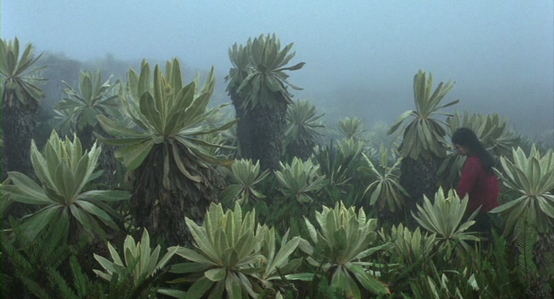 William Vega’s The Towrope is a minimalistic piece of filmmaking that plays out more like an existential mystery, with almost none of the characters intentions being particularly clear besides Alicia. This is a film that has a very strong spiritual, almost mythical quality, with Alicia’s character seemingly carrying death wherever she goes. In the opening sequence of the film we follow Alicia wandering through the dense marsh, with juxtaposition of death and darkness surrounding her. We learn that Alicia’s family has been murdered and she soon stumbles across her uncle’s house. Her uncle is reluctant to take her in at first, but he obliges, letting her help work on the motel he is trying to construct. This motel is what gives Alicia a sense of comfort and jubilation and yet we see how in her nightmares she witnesses the destruction of this symbol of hope. This a hard film to fully comprehend but I think Vega’s main exploration revolves around the relationship between despair and hope with Alicia’s character frequently teetering between the two. Even though she is given a place to live by her uncle, she remains a lonely individual, with the motel being symbol of hope. The other character worth mentioning would be the Uncle, whose intentions are perverse whether from his sexual-fueled thoughts about his niece to not-so honest dealings with his fishing collective. This character is handled extremely well, never being completely demonized for his actions. Vega shows a man whose desolate lifestyle has made him struggle desperately with loneliness, and the film beautifully captures the good and bad sides of this character. From a technical standpoint the cinematography of The Towrope really stands out. Vega uses the fog-soaked landscapes to his advantage in crafting a film that is beautifully constructed of skillful compositions which evoke this sense of isolation, loneliness, and unease. This unease is probably my favorite aspect of the film, with The Towrope creating this sense of dread, subtlety reminding the viewer of the dangers which exist potentially just over the horizon. We are reminded that what happened to Alicia’s parents could easily happen once again in this small community, with small reminders of the potential danger sprinkled throughout. William Vega’s The Towrope is a difficult film to grasp that almost feels like a commentary on the hardship and uncertainty of life in this setting. I would be lying if I said I grasped everything but it’s a film full of subtext and worth seeking out for the adventurous viewer. 7.5/10 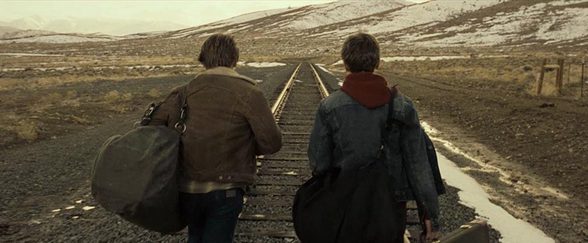 Since their mother succumbed to cancer at an early age, Frank and Jerry Lee Flannigan, two brothers, have always been alone aside from their companionship. Working odd jobs, the two brothers drift across the country, motel to motel. Life is hard, but the two brothers find solace in Frank's fantastical stories which often take them away from their troubles. When Jerry Lee is involved in a hit-and-run accident, the brothers are forced to flee across the state, setting off a chain of events that will change their lives forever. Alan & Gabe Polsky's The Motel Life is a quiet, reserved portrait of brotherhood set against a vagabond lifestyle. The relationship between the two brothers is very well done, with Jerry Lee being the brother whose already gone too far down this road self destruction, and Frank, the younger brother, who still has a chance to make something of his life. Their relationship and personalities are well designed and thought-out in The Motel Life, with Stephen Dorff giving a very notable performance as Jerry Lee. Hirsch is no slouch either, capturing a man whose begun to believe he is truly worthless and unwanted. From their constant battle with alcoholism to their self-defeatist mentality, The Motel Life subtlety captures this lifestyle in a honest and harrowing portrait. The film doesn't look for sympathy or compassion from the audience, instead simply presenting these characters in a neutral light, showing their strengths and weaknesses as men. Alan & Gabe Polsky's The Motel Life is a promising first feature which manages to make an intimate and sincere portrait of two brothers who've never had an easy life. 7.75/10 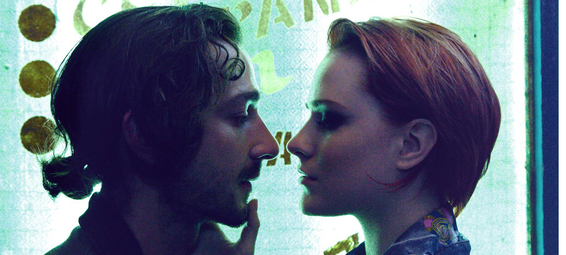 Shortly after the death of Charlie Countryman's mother, he has a vision in which she tells him to go to Bucharest. Being someone who hasn't exactly "found himself", Charlie immediately boards a plane across the Atlantic. On his flight he meets a fellow passenger, who dies mid-flight, with Charllie promising to meet his daughter and deliver a message. This leads Charlie to fall head over heels in love with the man's daughter, Gabi, although her ex-husband, a vicious gangster, has no intention of letting her go. Fredrik Bond's Charlie Countryman is a unique love story that doesn't quite achieve its intended dramatic weight. The film moves so fast, with an intoxicating effect but it never managers to reach its intended emotional impact. It's hard to pin down exactly but it could be the films lack of quiet moments where the audience is aloud into these characters' psyche. Charlie and Gabi are two interesting character who share similar afflictions and I wish the film would spent more time capturing that, exploring how the two of them have no real sense of home. Charlie Countryman is a visceral experience, with lots of subjective direction and a wide ranging color palette which make the film come to life. That being said the film's style can be a bit much especially the over-abundance of music which at times make Charlie Countryman feel more like a music video than a feature film. Fredrik Bond's Charlie Countryman is a visual treat but the film is a bit of hodgepodge tonally, being a blend of romance, thriller, comedy, and existential drama that never quite blends together as well as it should. 6/10 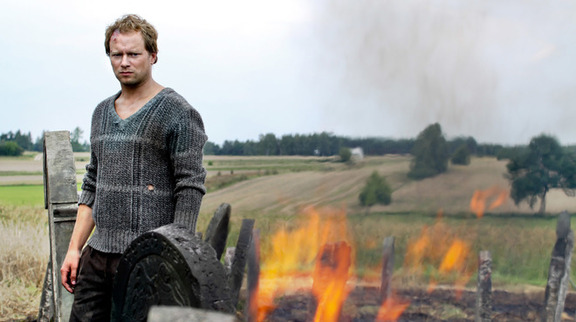 Wladyslaw Pasikowski's Aftermath begins with Franek, the son of a poor farmer, returning to the small village in central Poland where he was raised. He is there to see his brother Jozek but also to return to his homeland and get an explanation of why Jozek's wife moved to the US to stay with him. On his arrival he learns that Jozek has been completely ostracized by the small community, receiving death threats on an almost daily basis. As the two brothers struggle to rekindle their relationship they simultaneously unearth a dark secret that forces them to confront their past. The only term that comes to mind when describing Pasikowski's film is incendiary. Aftermath is a dark gothic tale that burns to the core of the audiences emotions, taking a deep look at the relationship between morality and selfishness/greed. From the very onset of Aftermath there is a great sense of unease, with the filmmaker using brooding cinematography and sound editing to create this great sense of dread. While Wladyslaw Pasikowski's Aftermath is a deeply affecting film, it plays out almost like a horror film with mystery elements that do a great job at disguising this dramatic bombshell up until the very end. At its core the film touches on lots of interesting ideas about religion, guilt, greed, and morality but the story of the two brothers, the one who stayed, and the one who left, has lots of subtlety and great depth of character. Aftermath is not an easy film, and it understands that in its somewhat ambiguous conclusion but make no mistake this is one of the most intense and well-made films of the year. 8.5/10 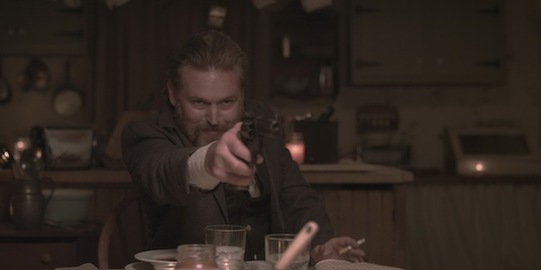 The Parkers live on the outskirts of town, keeping to themselves. Frank, the father, is the patriarch, ruling over his family with a rigorous intensity, determined to continue his ancestral customs that have been passed down for generations. When a torrential rainstorm moves into the area, tragedy strikes the family when the mother drowns. This leads Frank to rely more heavily on his young daughters, Iris and Rose, who much assume much more responsibility than they are privy too. To call Jim Mickle's We Are What We Are a remake of Jorge Michel Grau's version wouldn't be quite fair, it's more a re-imagining. While I liked Grau's version, Mickle is far more interested in character dynamics, examining the conflict Iris and Rose feel between family and their moral conscious. Frank Parker is truly terrifying, an evangelist man who has almost no moral compass whatsoever because he believes his actions are part of god's will. There is so much focus on these two daughters and their father that one could almost describe it as a very dark Shakespearian tragedy. We are What We Are never relies on jump scares or cheap horror tricks, instead opting for a more classical, brooding sense of horror which captures evil in its most terrifying form. It's moody, atmospheric, and features some fantastic directorial decisions and shot compositions. Jim Mickle's We Are What We Are is a nice reminder that good horror films are still being made, just not seen by nearly enough people. 8.25/10 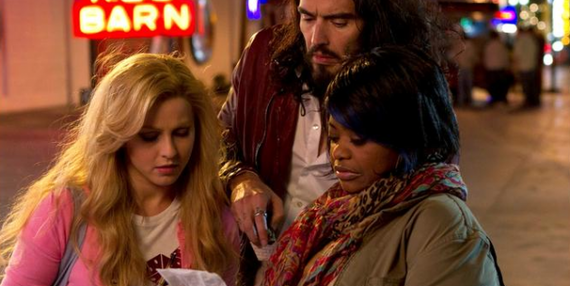 After a near fatal accident leaves her severely scarred, 21-year-old Lamb Mannerheim begins to realize that the world is a much bigger and diverse place than her highly conservative christian hometown in Montana. Armed with a large insurance payout, Lamb decides to venture out to Sin City to explore what else life has to offer. Wide-eyes and naive, Lamb ventures into the bright lights of Sin City befriending a bartender and lounge singer who eventually help her learn what it's like to really live. Diablo Cody's Paradise is a one-note, lazy screenplay that is a blundering, obvious and easy critique of the conservative christian subculture. The film continues Cody's tired trend of flamboyant banter that unfortunately never has anything refreshing or at least interesting to say. Though quite different, this films is somewhat like a mentally-challenged version of Electrick Children, except unlike that film Paradise doesn't spend the time to establish the protagonist's sheltered environment. Lamb's actions are somewhat understandable but lack almost all subtlety and nuance, something that Electrick Children had plenty of. Overall, Paradise is a film that feels very bland and vanilla, which is very unfortunate, considering Diablo Cody's strides with Young Adult, especially given Cody's ability to at least show bite 3/10 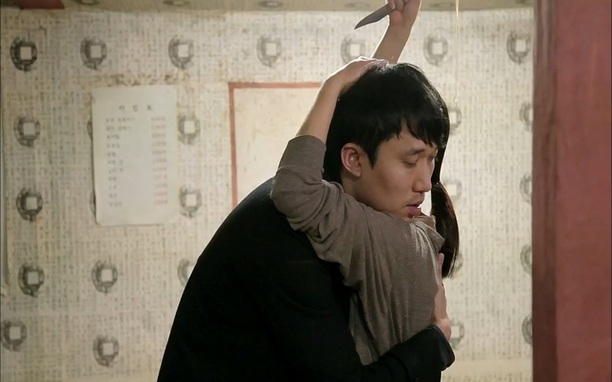 Trying to describe the narrative that drives Kim ki-Duk's Moebius simply wouldn't do this film justice. Basically, the film revolves around a woman who knows for a fact that her husband has been sneaking out to cheat on her. Fed up by this portrayal she sneaks into her husbands room as he sleeps, attempting to castrate him. She fails, as the husband awakens to thwart her plan, which pushes the still angry housewife to visit her teenage son's room where she castrates him instead. Ki-duk Kim's Moebius is a highly provocative and bizarre film that features castration, incest, and mutilation, among other disturbing atrocities. The film has absolutely no dialogue, basically being a silent film, that tells a disturbing tale that feels like a more extreme version of greek tragedy, with major influence from the Oedipal complex. Tonally this is a very odd film, there are so many horrifying situations, but Kim seems to treat the film more like a bizarre comedy with moments of levity. There are scenes of surprising tenderness, especially between the father and son, with the guilt and subsequent forgiveness being a major arch of the story. Moebius is a celebration of perversity with the relationship between pain and pleasure being a particularly interesting aspect of the film. There is something oddly touching, strangely beautiful, and deeply tragic about Moebius but I don't think Ki-duk Kim quite pulls off the balance of absurdity, poignancy, and comedy. The one thing that everyone can agree on pertaining to Moebius is that this film is the definition of a film that is not for everyone. 6/10 |
AuthorLove of all things cinema brought me here. Archives
June 2023
|
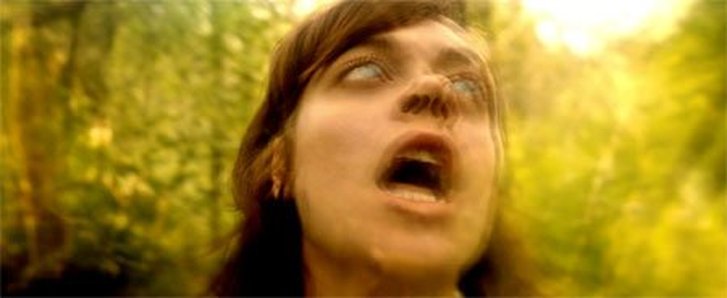
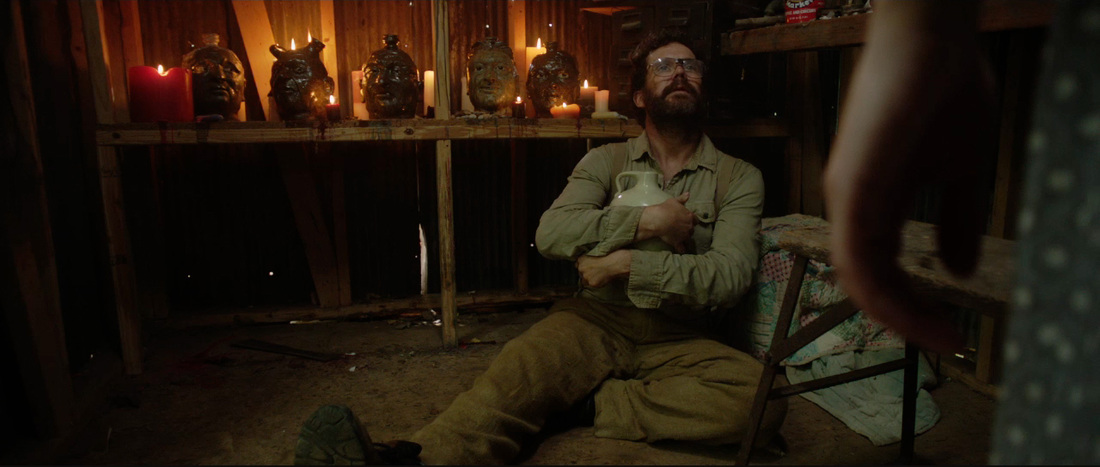
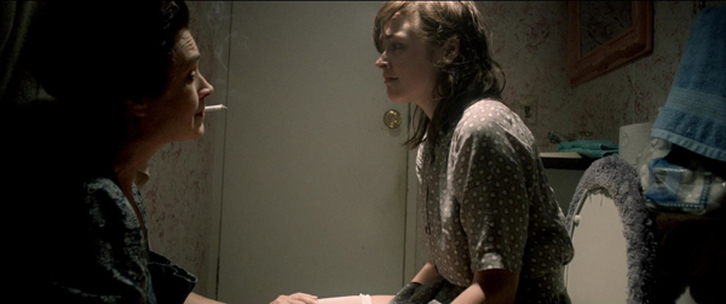
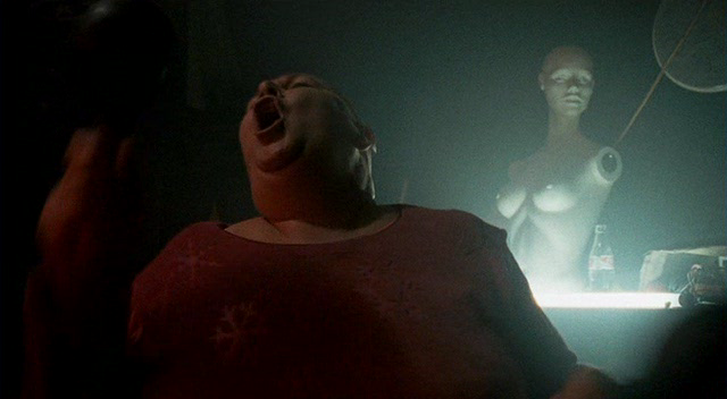
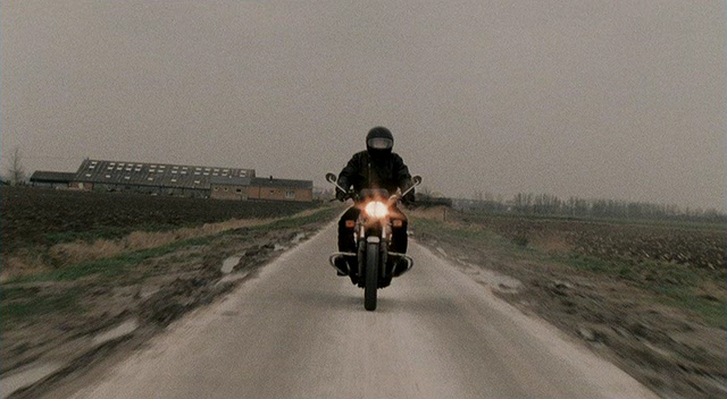
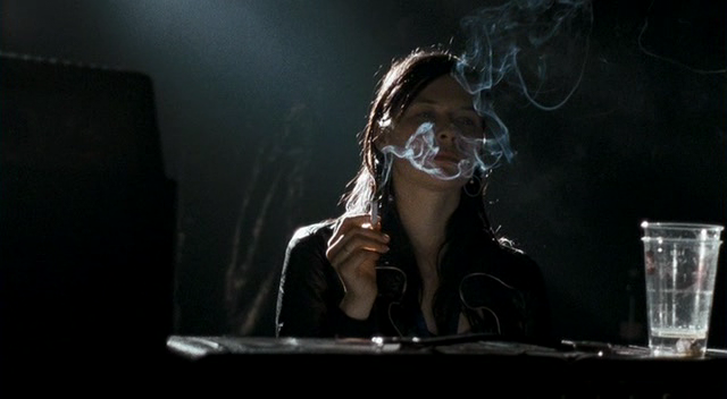
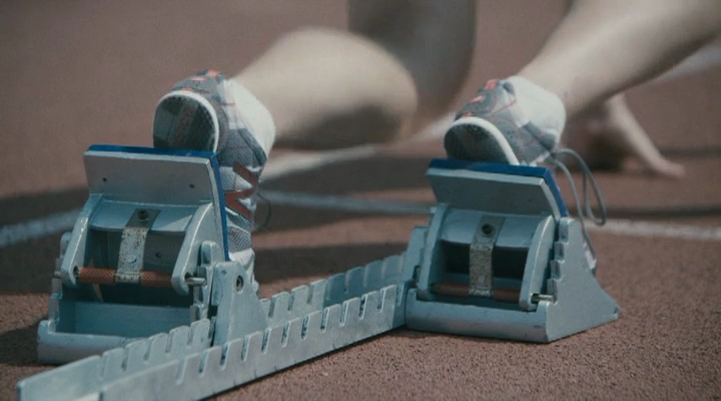
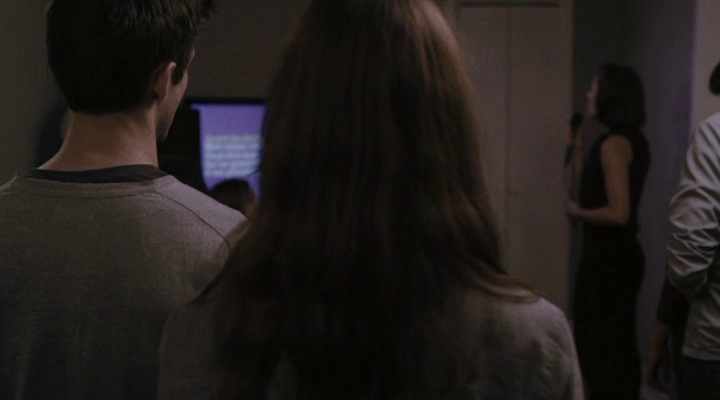
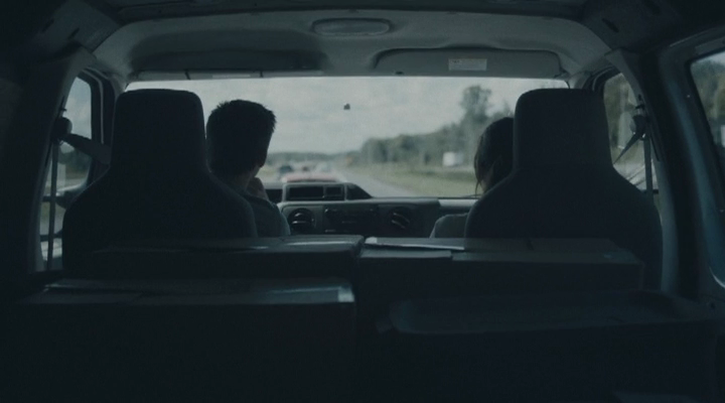
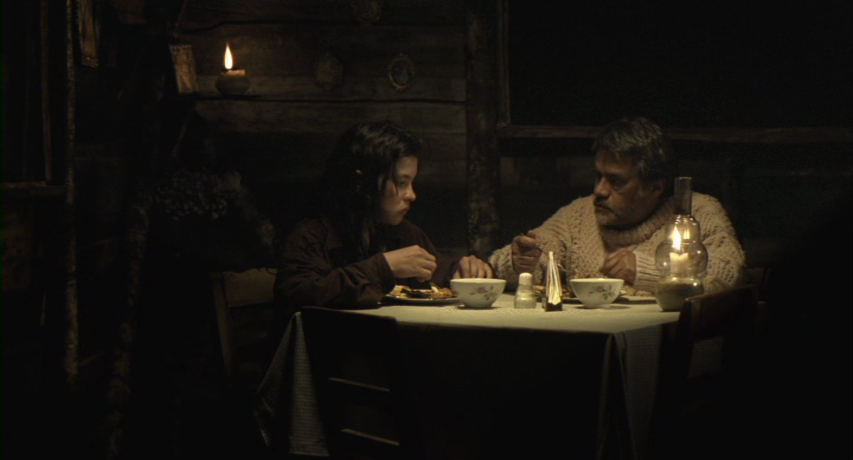
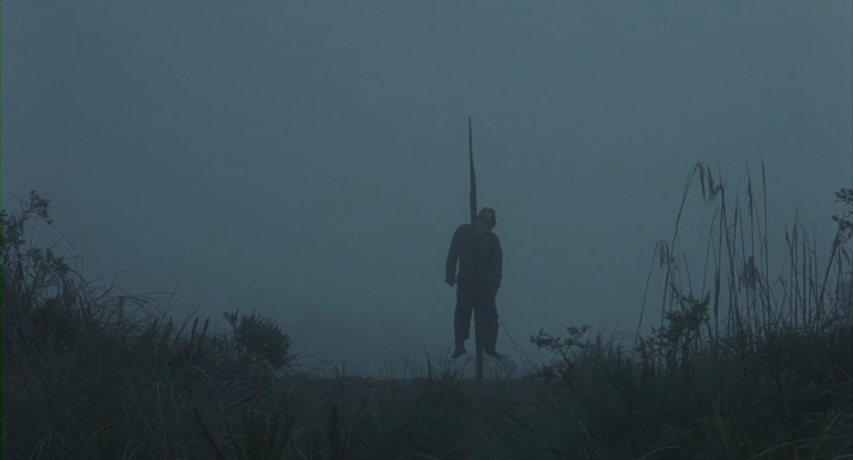
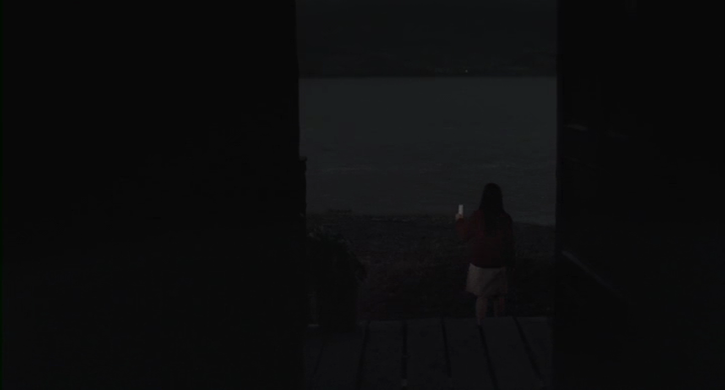
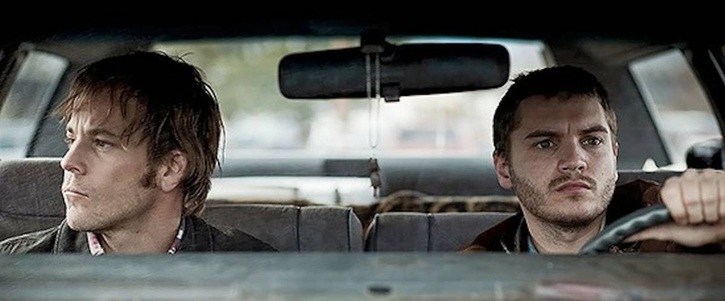
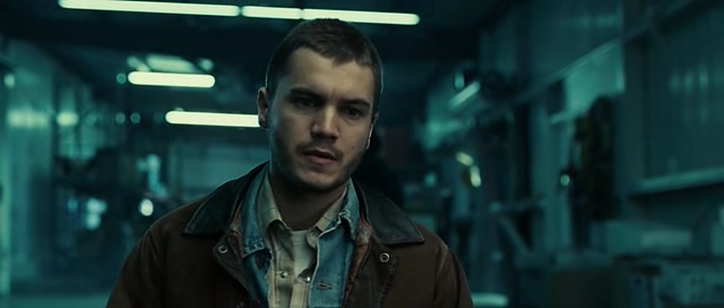
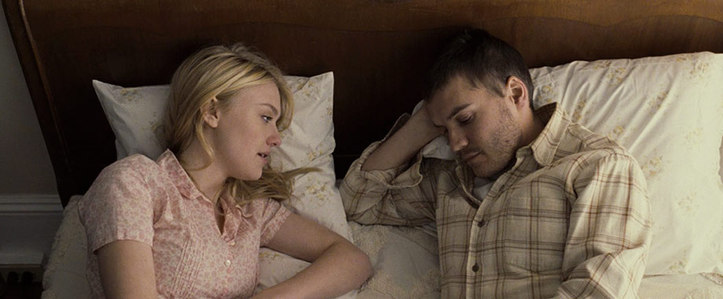
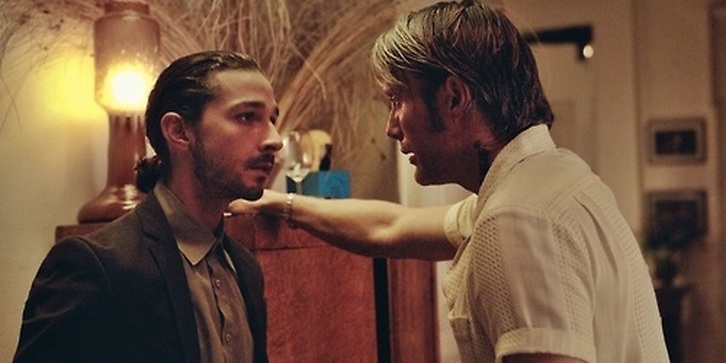
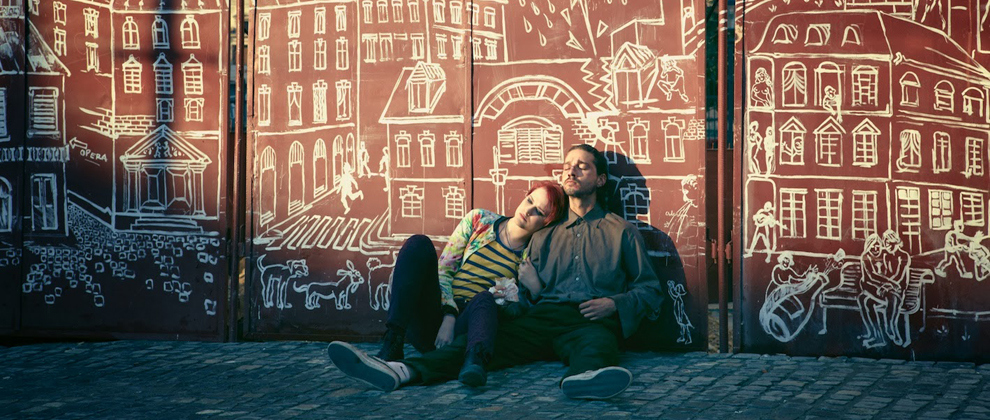
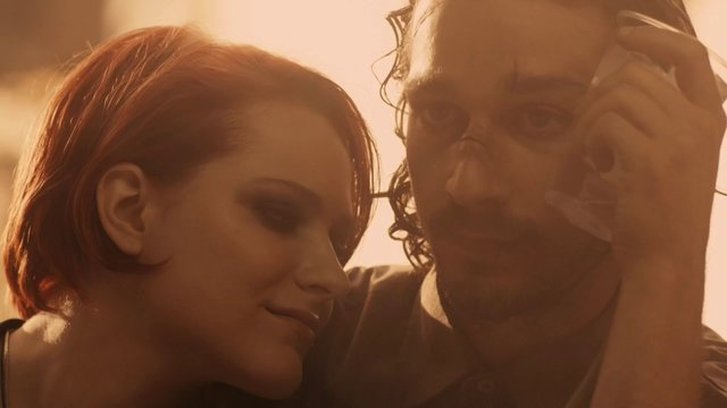
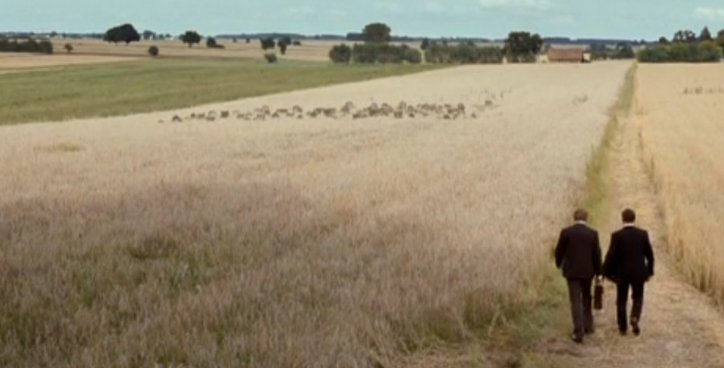
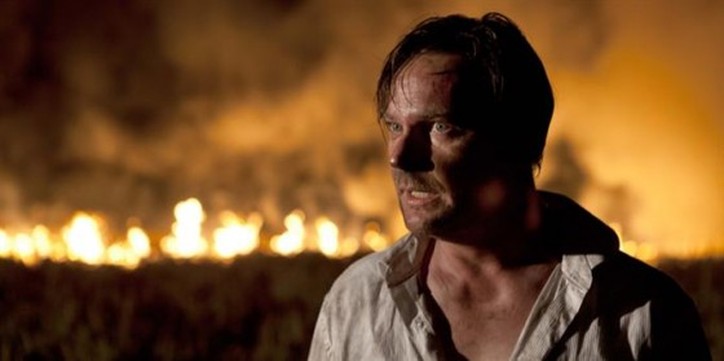
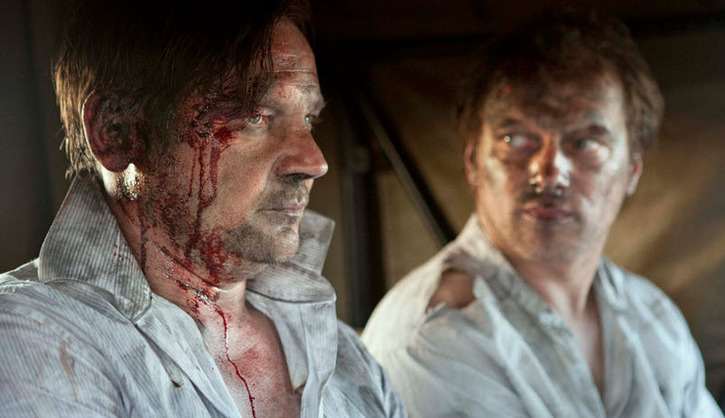
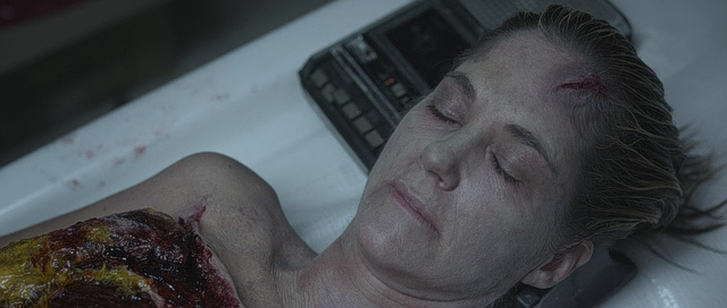
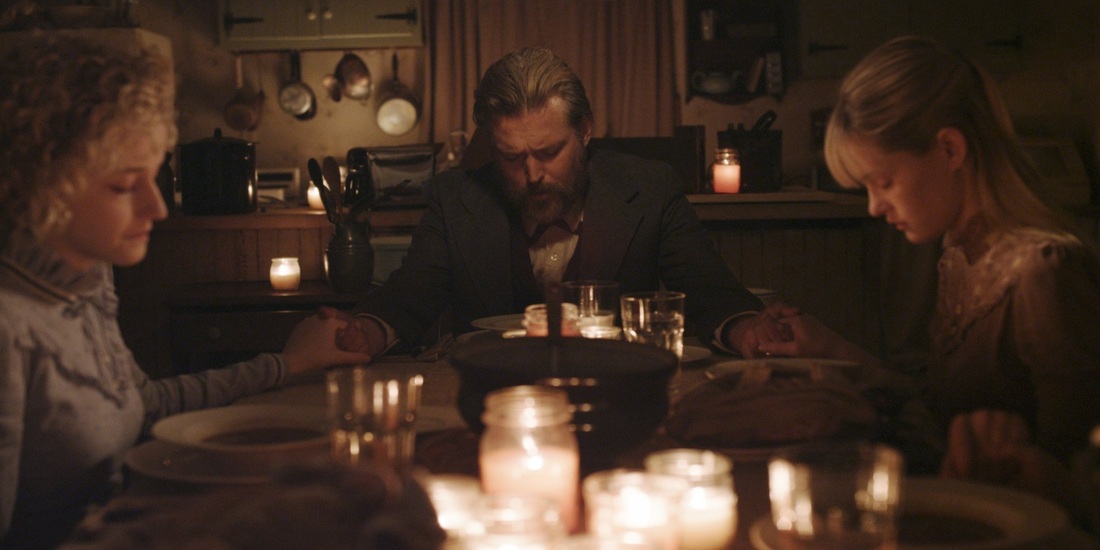
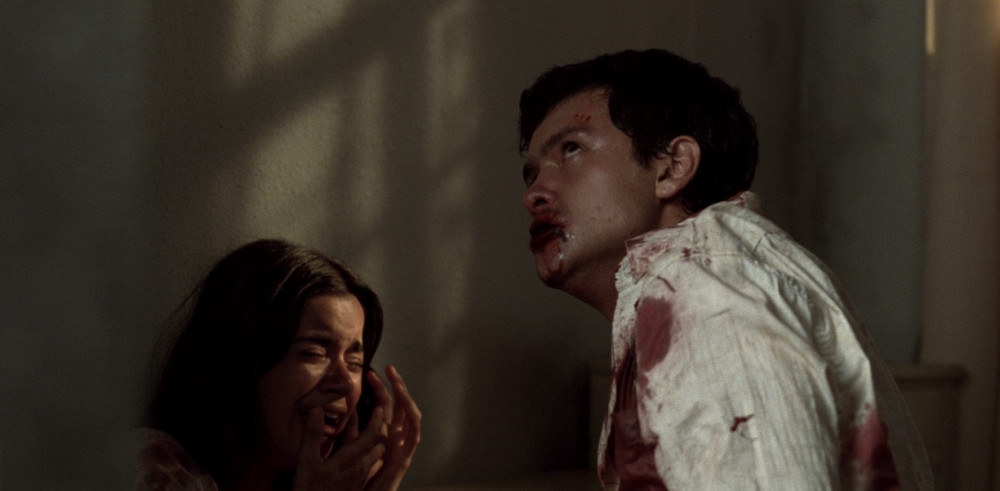
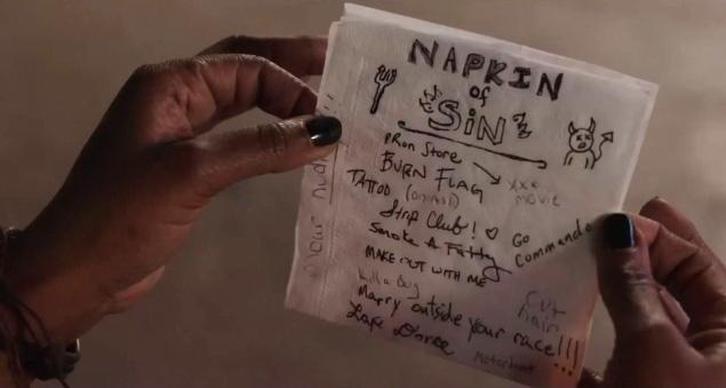
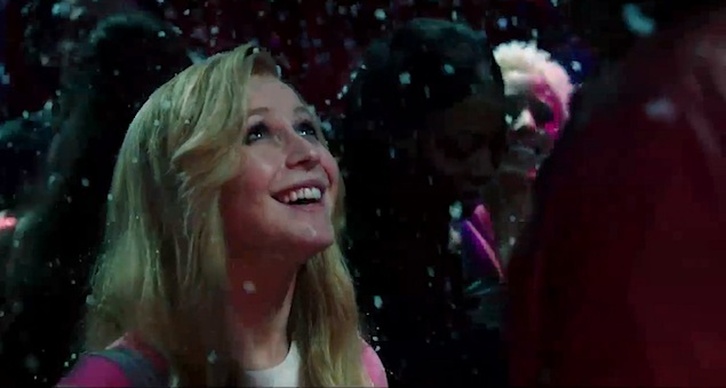
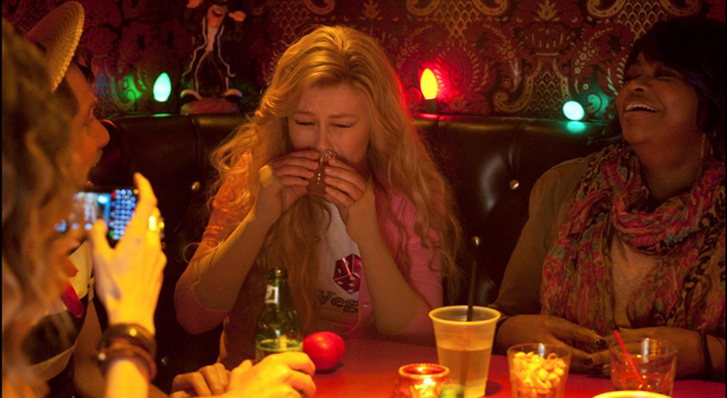
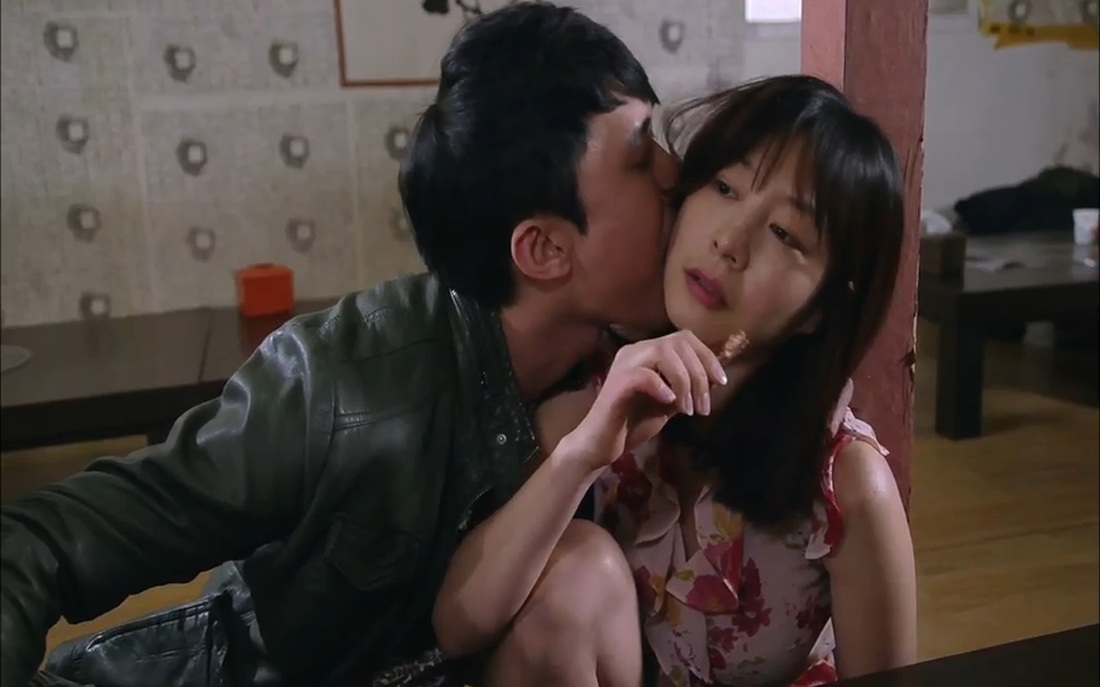
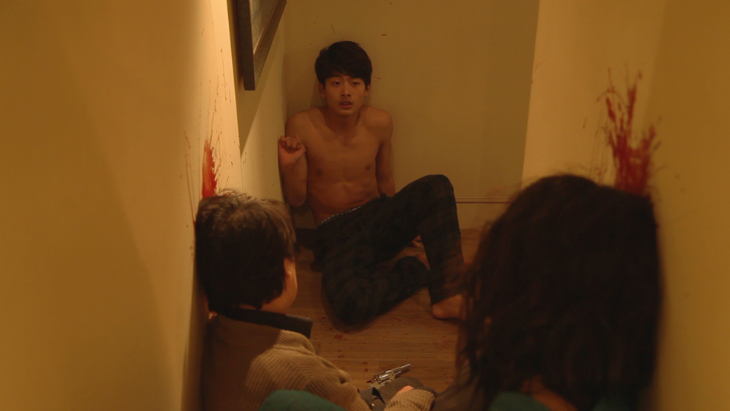
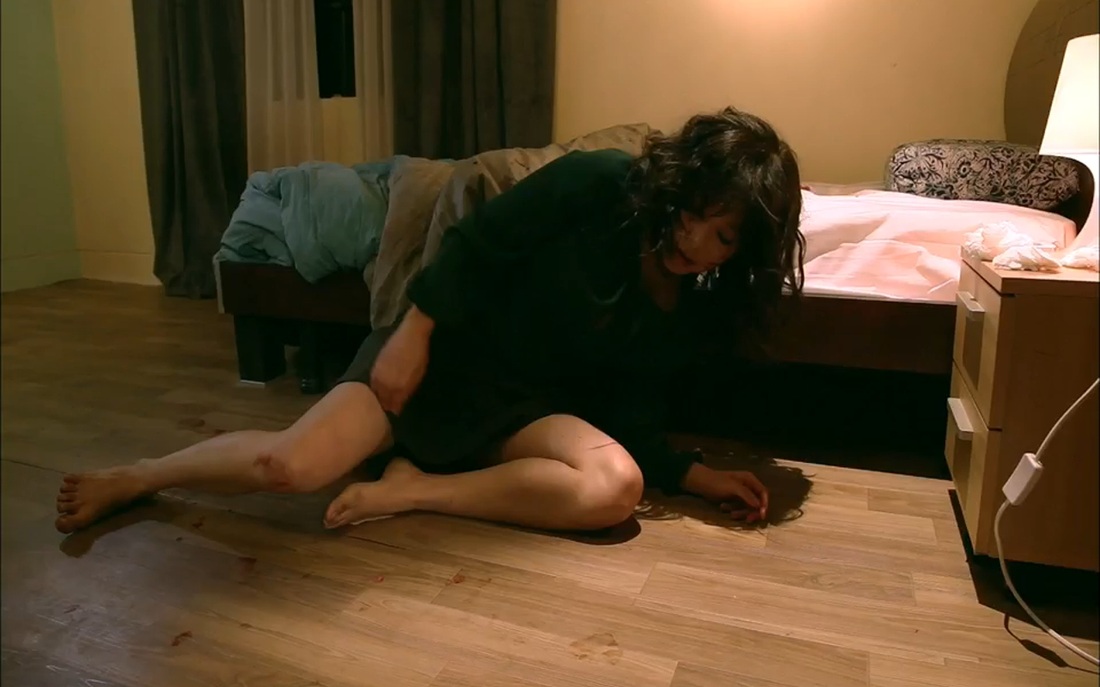
 RSS Feed
RSS Feed
